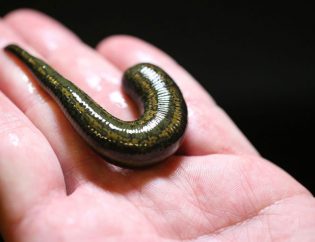Leeches are annelids (segmented worms) that are predominantly carnivores. They can be either predatory or parasitic, depending on the species. Predatory leeches eat invertebrates, such as insects, worms, and snails. Parasitic leeches, on the other hand, suck blood from other animals, including fish, amphibians, reptiles, birds, and mammals.
Predatory leeches
Predatory leeches use their sharp teeth to pierce their prey’s skin and then suck out the blood. They can also secrete a saliva that contains anticoagulants, which prevents the blood from clotting. This allows the leech to feed for a longer period of time without having to detach from its prey.
Parasitic leeches
Parasitic leeches attach themselves to their hosts with their suckers and then use their sharp teeth to pierce the skin. They then suck out the blood, which can take several minutes or even hours. Once they have finished feeding, they detach themselves from their host and crawl away.
Some species of leeches
- Hirudo medicinalis is a medicinal leech that is used in traditional medicine. It is native to Europe and Asia, but it has also been introduced to other parts of the world.
- Haemadipsa is a genus of leeches that are found in freshwater habitats. They are parasitic and feed on the blood of fish, amphibians, reptiles, birds, and mammals.
- Glossiphonia complanata is a predatory leech that is found in freshwater habitats. It feeds on insects, worms, and snails.
Leeches in the wild
Leeches are found in a variety of habitats, including freshwater, saltwater, and terrestrial environments. They are most common in moist areas, such as swamps, marshes, and rainforests.
Leeches and humans
Leeches can be a nuisance to humans, but they are not usually dangerous. However, some species of leeches can transmit diseases, such as schistosomiasis. This disease is caused by a parasite that is carried by certain species of freshwater leeches. Schistosomiasis can cause a variety of symptoms, including fever, chills, diarrhea, and blood in the stool.
Leeches in medicine
Leeches have been used in medicine for centuries. They were once used to treat a variety of conditions, including hemorrhoids, varicose veins, and blood clots. Today, leeches are still used in some cases, such as to remove blood from a hematoma.




